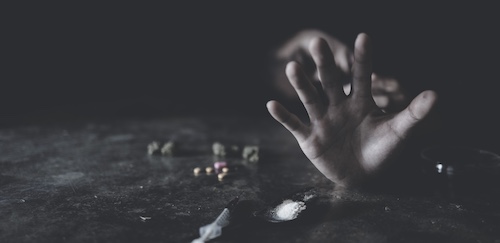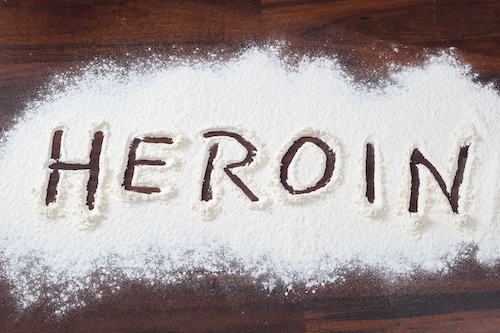At Carolina Recovery, we offer personalized, evidence-based treatment for individuals facing addiction. Our licensed facility in Durham, North Carolina, provides a supportive environment where you can begin your journey to recovery. We understand that each person’s path is unique, and our dedicated team is here to guide you every step of the way. If you’re ready to take the first step toward a healthier, sober life, we’re here to help.
Heroin use is rising across the United States, affecting individuals, families, and entire communities. This drug is highly addictive and often leads to serious health problems, including overdose and long-term brain damage. Recognizing the early signs of heroin use can help prevent lasting harm and may save a life.
In this blog, we break down the key signs of heroin use, the short-term and long-term effects of the drug, and how Carolina Recovery’s substance abuse treatment center in Durham can provide the professional support needed for lasting recovery.
What Is Heroin and Why Is It So Dangerous?
Heroin is a powerful and highly addictive opioid drug. Understanding how it works and why it causes so much harm is key to recognizing the signs of heroin use.
Heroin Is Made from Morphine
Heroin is processed from morphine, a substance extracted from the seed pod of the opium poppy plant. Morphine is used in medical settings, but heroin is illegal and unregulated. Heroin often comes as a white or brown powder or a black sticky substance known as black tar heroin. The drug is usually injected, snorted, or smoked.
Heroin Changes the Brain
Heroin affects the brain’s opioid receptors. It creates intense feelings of pleasure, which lead to repeated use. Over time, the brain adapts and stops producing natural chemicals. This leads to strong cravings and dependence. Continued heroin use can cause long-term changes in brain function and behavior.
Short-Term Effects Are Deceptive
People often use heroin for its fast, euphoric high. The initial effects include warm flushing of the skin, dry mouth, and a heavy feeling in the limbs. These effects may last for several hours. But behind this temporary relief, heroin is slowing heart function, lowering breathing rate, and impairing mental clarity.
Heroin Use Leads to Health Problems
Repeated use of heroin increases the risk of many health issues. These include infectious diseases from sharing needles, liver and kidney damage, collapsed veins, and heart infections. Long-term heroin use can lead to permanent brain damage and poor mental health.
Heroin Is Highly Addictive
Heroin is one of the most addictive drugs. The body quickly builds tolerance, forcing users to take larger doses to get the same effect. This increases the risk of overdose. Withdrawal symptoms such as muscle and bone pain, vomiting, and intense cravings make quitting very hard without medical help.
Unpredictable Strength Increases Risk
Street heroin is often mixed with other substances, including other opioids like fentanyl. Users may not know the actual strength of what they are taking. This makes overdose more likely and more dangerous.
Most Common Signs of Heroin Use
Heroin addiction often begins in secret but shows clear signs as it progresses. Recognizing these signs early can save a life.
Physical Signs
Heroin users often show physical changes. Needle marks on arms or legs are common, often hidden under long sleeves. Collapsed veins, sudden weight loss, dry mouth, and frequent scratching may appear. The drug causes heavy limbs, warm flushing, and slowed breathing. You may notice the person nodding off at odd times or having trouble staying alert. Some may lose interest in sex or suffer from constant fatigue.
Behavioral Signs
Behavior often changes before the physical effects become obvious. Heroin users may withdraw from family members and avoid social contact. They may lose interest in work, school, or normal activities. There is often a clear drop in performance. Users may lie, steal, or act secretive to cover up drug use. Mood swings, irritability, and sudden anger are common behavioral symptoms of substance abuse.
Emotional and Mental Signs
Heroin affects mental health quickly. Users may seem anxious, depressed, or disconnected. They may show poor judgment or confusion. Long-term use can lead to memory problems and changes in personality. Mental health issues often get worse as the addiction deepens.
Environmental Signs
Certain objects can indicate heroin use. These include burned spoons, syringes, rubber bands, and small plastic bags. The smell of smoke or odd chemical odors may be present. Personal hygiene may decline. Users may keep strange hours or disappear for long periods.
Short-Term and Long-Term Effects of Heroin Use
Heroin affects the body and brain quickly. Its short-term effects may seem mild at first, but the long-term damage can be severe and permanent.
Short-Term Effects
The immediate effects of heroin use begin within seconds to minutes, depending on how the drug is taken. Users often feel a strong rush of euphoria, followed by a heavy feeling in the arms and legs. This is often joined by warm flushing of the skin, dry mouth, and slowed heart rate. Breathing also slows, which can lead to unconsciousness or death in high doses. These effects last several hours, making the user appear drowsy or disconnected.
Long-Term Health Problems
Long-term heroin use causes serious health problems. Many users experience collapsed veins, liver damage, and kidney disease. Sharing needles raises the risk of infectious diseases like HIV and hepatitis. Chronic use affects the brain, leading to memory loss, poor decision-making, and changes in personality. Heroin damages nerve cells and weakens heart function over time.
Mental Health and Brain Function
Heroin changes how the brain handles pleasure, pain, and decision-making. The drug weakens the brain’s ability to function normally without opioids. This can lead to intense cravings, depression, and anxiety. Long-term heroin use can cause permanent brain damage, making recovery harder.
Addiction and Dependency
Heroin is highly addictive. The body builds tolerance fast, which means users need larger doses to get the same effect. This increases the risk of overdose. Withdrawal symptoms include muscle and bone pain, chills, vomiting, and intense cravings. Many users continue drug use just to avoid withdrawal.
How Carolina Recovery Can Help
Heroin addiction can be treated with the right support and care. Carolina Recovery Center in Durham provides proven methods for people struggling with substance abuse.
Located in Durham, Focused on Recovery
Carolina Recovery is a licensed substance abuse treatment center based in Durham, North Carolina. The center helps individuals who are facing heroin addiction and related drug use issues. Treatment is based on science, compassion, and direct care. The staff includes trained health care providers who understand the physical and mental effects of heroin use.
Individual Treatment Plans
Every person has different needs. Carolina Recovery creates a specific treatment plan for each client. Plans may include medical detox, therapy, and long-term support. The goal is to treat not just the drug addiction but also the mental health symptoms that come with it. This includes managing intense cravings, depression, and anxiety.
Support for Long-Term Recovery
Recovery is not only about stopping drug use. It means building a life that supports health and stability. Carolina Recovery offers aftercare services that focus on relapse prevention, life skills, and support networks. This helps reduce the risk of future drug abuse and increases the chances of long-term success.
Help Is Always Available
If you or someone you know shows signs of heroin use, it is important to act early. Carolina Recovery in Durham offers confidential help, medical attention, and clear steps forward. Getting help can stop the damage and start healing.
Jumpstart Your Healing Journey With Carolina Recovery!
If you or someone close to you is showing signs of heroin use, now is the time to take action. Heroin addiction can quickly lead to serious health problems, including overdose and long-term damage, but recovery is possible with the right support. At Carolina Recovery, our experienced team provides compassionate, evidence-based care tailored to each person’s needs.
Contact us at (812) 408-8842 for more information today!







